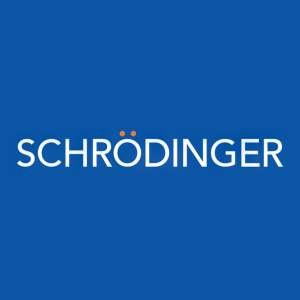Schrödinger Presents Data Supporting Advancement of SGR-1505 and SGR-2921 at American Society of Hematology 2023 Annual Meeting
Schrödinger also reported preliminary pharmacodynamic data from the Phase 1 study of SGR-1505 in healthy subjects, which showed that SGR-1505 inhibited cytokine release in human whole blood and demonstrated evidence of MALT1 inhibition in humans. The company will report additional data from the healthy subject study at its Pipeline Day on December 14, 2023.
“The pharmacological data for SGR-1505 and SGR-2921 demonstrate that our development candidates have favorable, differentiated profiles with best-in-class potential,” stated Karen Akinsanya, Ph.D., president of R&D therapeutics at Schrödinger. “Our progress within these programs further validates our computational approach to designing therapies with the potential to address the limitations of current treatments. SGR-1505 and SGR-2921 are now being evaluated in Phase 1 clinical studies, and we look forward to seeing these programs advance.”
A Phase 1 dose-escalation study of SGR-1505 in relapsed or refractory B-cell malignancy patients is ongoing in the
SGR-1505 Data at ASH
The presentation (Abstract # 2997), “SGR-1505 is a Potent MALT1 Protease Inhibitor with a Potential Best-in-Class Profile,” includes preclinical data demonstrating the potency of SGR-1505 and the potential for combination activity with standard of care agents. Preclinical data showed that SGR-1505 is more potent than JNJ-6633, which has previously provided clinical validation for MALT1 inhibition as a potential therapeutic strategy for treating both chronic lymphocytic leukemia (CLL) and non-Hodgkin’s lymphomas (NHL). In a preclinical model of diffuse large B-cell lymphoma, SGR-1505, in combination with venetoclax, demonstrated a stronger combination impact on cell viability compared to JNJ-633 plus venetoclax. Gene expression analysis showed that SGR-1505 provides greater modulation of NF-ΚΒ and related pathway genes compared to JNJ-6633. Signaling of the NF-ΚΒ pathway is known to play a critical role in the initiation and progression of many types of cancers, particularly B cell malignancies.
Preliminary clinical biomarker data from the Phase 1 study in healthy subjects showed that SGR-1505 inhibited cytokine release in ex vivo stimulation of human whole blood. The inhibition of certain cytokines in whole blood from human subjects dosed with SGR-1505 provides pharmacodynamic evidence of MALT1 inhibition. These data are consistent with prior preclinical observations in an in vitro whole blood assay from healthy human subjects, where approximately a 50-fold lower concentration of SGR-1505 was needed to achieve 90 percent inhibition of cytokine release compared to JNJ-6633. The data support continued evaluation of SGR-1505 in the ongoing Phase 1 study in patients with advanced B-cell malignancies.
SGR-2921 Data at ASH
The presentation (Abstract #2801), “SGR-2921, a Potent CDC7 Inhibitor, Demonstrates Significant Anti-Leukemic Responses in Patient-Derived AML Models Representing Difficult-to-Treat Disease,” includes preclinical data for SGR-2921 which demonstrate the potency, breadth of activity and synergistic effects of SGR-2921 in combination with standard-of-care therapies. In vitro, SGR-2921 exhibited greater potency compared to other clinical-stage CDC7 inhibitors and showed anti-proliferative activity in AML patient-derived samples regardless of driver mutations. In vivo, SGR-2921 showed dose-dependent reduction of AML blasts in multiple AML models representing difficult-to-treat disease. SGR-2921 also showed synergistic activity in combination with decitabine in p53-mutated AML models in vivo. Together, these data support the ongoing evaluation of SGR-2921 as a potential treatment for AML, with particular utility in patients with high-risk mutations and relapsed and refractory AML.
Schrödinger Pipeline Day Webcast Information
Schrödinger will review the company's proprietary research and development programs, including updates on SGR-1505 and SGR-2921, at its Pipeline Day taking place in-person and virtually on December 14, 2023. Pipeline Day will be a hybrid event, with a webcast and limited in-person attendance available to members of the investment community. The presentation can be accessed in the “Investors” section of Schrödinger’s website and will be archived for approximately 90 days. To participate in the live webcast, please register for the event here. It is recommended that participants register at least 15 minutes in advance of the event.
About Schrödinger
Schrödinger is transforming the way therapeutics and materials are discovered. Schrödinger has pioneered a physics-based computational platform that enables discovery of high-quality, novel molecules for drug development and materials applications more rapidly and at lower cost compared to traditional methods. The software platform is licensed by biopharmaceutical and industrial companies, academic institutions, and government laboratories around the world. Schrödinger’s multidisciplinary drug discovery team also leverages the software platform to advance a portfolio of collaborative and proprietary programs to address unmet medical needs.
Founded in 1990, Schrödinger has approximately 800 employees and is engaged with customers and collaborators in more than 70 countries. To learn more, visit www.schrodinger.com, follow us on LinkedIn and Instagram, or visit our blog, Extrapolations.com.
Cautionary Note Regarding Forward-Looking Statements
This press release contains forward-looking statements within the meaning of The Private Securities Litigation Reform Act of 1995 including, but not limited to those statements regarding the potential advantages of Schrödinger’s computational platform, the clinical potential and favorable properties of its product candidates, including SGR-1505 and SGR-2921, the potential for SGR-1505 to be used for the treatment of advanced B-cell malignancies, the potential for SGR-2921 to be used for the treatment of AML or myelodysplastic syndrome, and the timing, progress, and results of clinical trials for its product candidates. Statements including words such as “aim,” “anticipate,” “believe,” “contemplate,” “continue,” “could,” “estimate,” “expect,” “goal,” “intend,” “may,” “might,” “plan,” “potential,” “predict,” “project,” “should,” “target,” “will,” “would” and statements in the future tense are forward-looking statements. These forward-looking statements reflect Schrödinger’s current views about its plans, intentions, expectations, strategies and prospects, which are based on the information currently available to the company and on assumptions the company has made. Actual results may differ materially from those described in these forward-looking statements and are subject to a variety of assumptions, uncertainties, risks and important factors that are beyond Schrödinger’s control, including the uncertainties inherent in drug development and commercialization, such as the conduct of research activities and the timing of and its ability to initiate and complete preclinical studies and clinical trials, whether results from preclinical and early clinical studies will be predictive of the results of later preclinical studies and clinical trials, uncertainties associated with the regulatory review of clinical trials and applications for marketing approvals and the ability to retain and hire key personnel on its business and other risks detailed under the caption “Risk Factors” and elsewhere in the company’s Securities and Exchange Commission filings and reports, including its Quarterly Report on Form 10-Q for the fiscal quarter ended September 30, 2023, filed with the Securities and Exchange Commission on November 1, 2023, as well as future filings and reports by the company. Any forward-looking statements contained in this press release speak only as of the date hereof. Except as required by law, Schrödinger undertakes no duty or obligation to update any forward-looking statements contained in this press release as a result of new information, future events, changes in expectations or otherwise.
View source version on businesswire.com: https://www.businesswire.com/news/home/20231210358409/en/
Matthew Luchini (Investors)
Schrödinger, Inc.
matthew.luchini@schrodinger.com
917-719-0636
Allie Nicodemo (Media)
Schrödinger, Inc.
allie.nicodemo@schrodinger.com
617-356-2325
Source: Schrödinger







